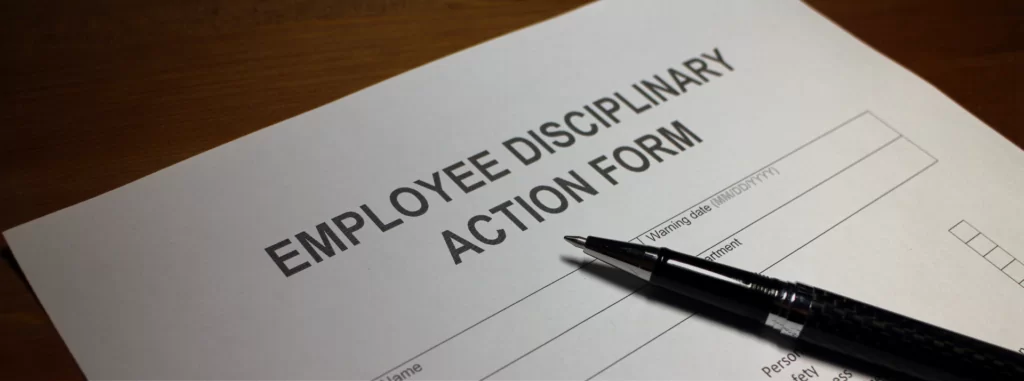
Managing Director, Victoria Brown outlines employers’ options during the disciplinary procedure when addressing an employee’s conduct or performance.
A disciplinary procedure is used by an employer to address an employee’s conduct or performance. Understanding the disciplinary procedure is important as mistakes can be very costly for an employer.
When dealing with a disciplinary matter, the manager/employer can often be quite distressed about the situation. The first step we would recommend taking is to understand exactly what has happened and therefore what process we should be following;
1. unacceptable or improper behaviour (misconduct) or
2. performance (capability)
It is wise to consider whether you can deal with this informally first. It can usually be the quickest and easiest solution. I regularly find that a Line Manager’s failure to ‘nip a problem in the bud’ at the onset, grows to become a bigger problem. Prevention is always better than cure.
If the issue is still at an informal stage, then the employer could try solving the issue with their employee by:
It is important to note that although the above is ‘informal’ it should still be documented. This is because you may need to refer to this audit trail at a later date if the conduct or performance does not improve.
Unfortunately, some employee issues are beyond an informal discussion. Therefore establishing the difference is key and some training may be needed for your line managers if you do not have day-to-day control over this.
In accordance with ACAS ‘Misconduct is when an employee’s inappropriate behaviour or action breaks workplace rules’.
Examples of misconduct include:
You may have your own examples. So I would advise to refer these to in your Disciplinary policy and procedure to ensure you are open and transparent at all times.
If an act is very serious or has very serious effects, then you may consider it an act of ‘gross misconduct’.
Examples of gross misconduct in the workplace may include:
As stated earlier, you may have different examples of gross misconduct in your policy.
It is so important not to dismiss someone on the spot. So many employers when taken to an employment tribunal have lost their case because they simply did not follow their own disciplinary process. Try to remain calm in this situation and carry out an investigation by following the full disciplinary procedure. You will then have the option to dismiss without notice or payment in lieu of notice if you decide to dismiss after the investigation and subsequent disciplinary hearing.
Capability of performance is to do with an employee’s ability to do the job. Typically an Employer will have a separate procedure for dealing with capability and performance issues. It is important to familiarise yourself with your own procedures or have support from an HR professional that can help to ensure you follow your own procedure. We have had many situations arise from employers failing to follow their own company procedure.
If you are struggling with a disciplinary or capability matter and need some advice or training for your line managers please get in contact with our team today.
T: 0330 107 1037
Twitter: @HPC_HRServices